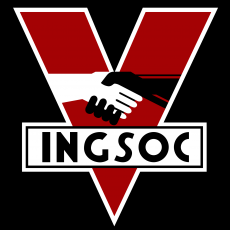
Email: EllaTournes@bexleygs.co.uk
Total Article : 45
About Me:Sixth form student currently studying English Literature, Drama and Theatre Studies, Classical Civilisation and History.

In terms of the description of the actual settings of the worlds, Huxley seems to remove aspects of reality on purpose. The word ‘hatchery’ is used to describe the creation of humans – something that bears connotations of animals, particularly chickens, something very far removed from the experience of birth a reader would have. The only reference to anything real, or visceral is the ‘thin light…hungrily seeking… academic goose flesh’ – this ‘hungry seeking’ is very quickly replaced and juxtaposed with a semantic field of coldness and lifelessness (‘cold’ ‘wintriness’, ‘glass’ ‘nickel’ ‘porcelain’ ‘white’ ‘corpse-coloured’). References to ‘Hatcher(ies)’ ‘Conditioning Centre’ ‘laboratory’ ‘microscopes’ ‘Fertilizing Room’ set up the heavy use of scientific jargon that Huxley utilises throughout the novel – jargon that sometimes makes the novel read more as science-fiction. Huxley also describes the sound of the room as a ‘soliloquising hum’ – the word ‘soliloquising’ bears connotations of theatre, and perhaps suggests the unrealistic, artificial nature of the Brave New World. Contrastingly, Orwell seems to draw on elements that bear more familiarity with the reader. ‘Winston Smith’ is a very ‘everyman’ name – through his name, at least, the protagonist of the novel seems very typical and normal. Throughout the beginning of the novel there seem to be lots of references to post-war Britain; the smell of ‘boiled cabbage and old rag mats’ would be very familiar to a reader in 1948, having experienced times of austerity and poverty. The description of the ‘economy drive for hate week’ seems to link to the idea of blackouts, in an effort to raise funds for World War II. The idea of ‘Victory Mansions’, and the irony of its name when juxtaposed to the description of its smell, its broken lift and its lack of electricity, seems to link to the idea a lot of people had of the irony of bankrupt Britain claiming triumph in World War II. It seems that Orwell sets ‘1984’ in the future but always links it back to the past in a prevalent, relevant way – ‘Brave New World’ however, is a lot further removed from the world of the reader, and is set very firmly and very far into the future.
In my opinion, although both authors introduce their novels in very similar ways, with the clear depiction of their fictional worlds as dystopic, Huxley seems to alienate the reader where Orwell brings them a more immediate threat. I think that Orwell is more effective due to this – from the onset, the reader is aware that the horrors of the world of ‘1984’ link very clearly to the failings that Orwell sees in his own society. Although there are elements of this throughout ‘Brave New World’, Huxley seems to aim to make his world seem very separate from the world of the reader. I personally find the prospect of the world of ‘1984’ more foreboding, as I can clearly see how Orwell got there from the world I live in today (or the world he lived in 1948). I feel like that’s not possible with Brave New World – although the ideas themselves are unnerving, it lacks immediacy, undermining its significance compared to ‘1984’.

0 Comment:
Be the first one to comment on this article.